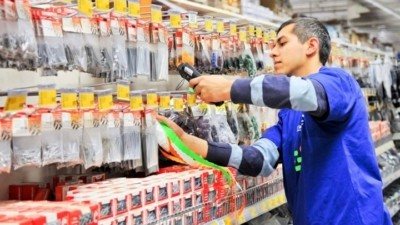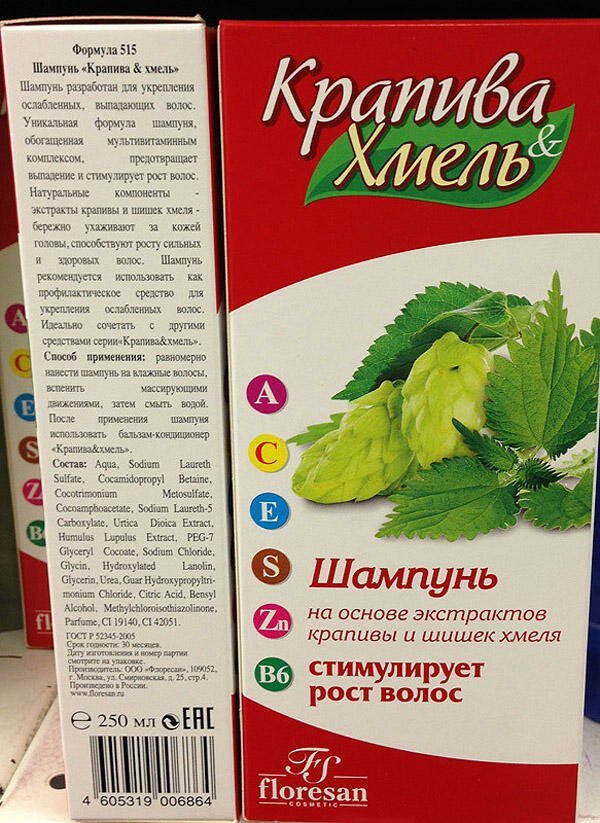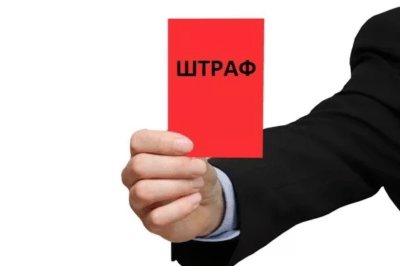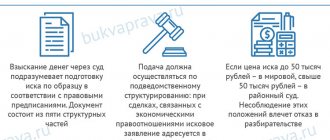Deception and misleading the buyer - what is it?
What illegal actions or deception on the part of the seller may a buyer encounter when coming to a supermarket or other store?
The main document regulating the relationship between the buyer and the seller is the Federal Law of the Russian Federation dated February 7, 1992 No. 2300-1 “On the Protection of Consumer Rights” (last edition introduced on January 1, 2019 according to the Federal Law dated July 29, 2018 No. 250-FZ). It establishes the obligations of the seller and the rights of the buyer, as well as ways to protect the rights and responsibilities of the parties. The relationship between the parties in the store is equivalent to a purchase and sale transaction.
According to Article 178 of the Civil Code of the Russian Federation, it can be declared invalid in case of serious offenses on the part of the seller through deception or significant misleading of the buyer. It is quite difficult to separate these concepts. For this purpose, Article 14.7 of the Code of Administrative Offenses of the Russian Federation “Consumer Deception” and Article 159 of the Criminal Code of the Russian Federation “Fraud” are used.
The essence of the offenses in question is as follows:
- Misleading. The very concept of “delusion” is defined by the state when a person is confident in some information, although it does not correspond to reality. In the store, such information relates to the price, quality, technical characteristics and purpose of the product, which leads to the purchase of low-quality or unnecessary products.
On the part of the seller, it is considered an offense in the form of misleading the buyer to deliberately provide distorted information about the product for the purpose of selling it. This may be an exaggeration of the merits or capabilities of the product, incorrect information about:- cost;
quality;
- expiration date;
- manufacturer.
- Deception - this is a direct action of the seller leading to the extraction of illegal profits, i.e. pre-planned unlawful intent. It can be done by:
- shortcut;
body kit;
- measurements;
- selling counterfeit or handicraft products under the guise of branded products;
- sales of unusable, expired products.
In fact, both offenses are close to each other, but misrepresentation concerns only incorrect information, and deception is caused by a deliberate violation of the law for the purpose of enrichment.
Judicial practice under Article 14.7 of the Code of Administrative Offenses of the Russian Federation:
Decision of the Supreme Court: Determination N 309-AD17-362 dated March 10, 2017 Judicial Collegium for Economic Disputes, cassation
Decision of the Supreme Court: Resolution N 304-AD16-8520 of July 29, 2016 Judicial Collegium for Economic Disputes, Cassation
Decision of the Supreme Court: Determination N 310-AD17-2851 dated April 14, 2017 Judicial Collegium for Economic Disputes, cassation
Decision of the Supreme Court: Determination N 301-AD17-8217 dated July 14, 2017 Judicial Collegium for Economic Disputes, cassation
Decision of the Supreme Court: Determination N 301-AD17-10153 of 08/15/2017 Judicial Collegium for Economic Disputes, cassation
Decision of the Supreme Court: Determination N 305-AD17-11653 dated 09/07/2017 Judicial Collegium for Economic Disputes, cassation
Decision of the Supreme Court: Resolution N 302-AD16-12489 of 10/05/2016 Judicial Collegium for Economic Disputes, Cassation
Decision of the Supreme Court: Determination N 309-AD17-4686 dated May 19, 2017 Judicial Collegium for Economic Disputes, cassation
Decision of the Supreme Court: Resolution N 310-AD16-3630 of 05/11/2016 Judicial Collegium for Economic Disputes, Cassation
Decision of the Supreme Court: Determination N 305-AD17-6881 dated June 19, 2017 Judicial Collegium for Economic Disputes, cassation
- First
- «
- Last
Comments ()
Write a comment
How can consumers be misled?
The following methods of misleading you are quite common:
- No price tag for the product. For example, expensive products are placed next to similar products with a low price. At the same time, the price tag is only on a cheap product.
- Discrepancy between the price on the price tag and the price at the checkout when calculating. If one product is purchased, this is immediately revealed and there is an opportunity to refuse the purchase.
It’s more difficult when several different products are purchased and you can’t react at the checkout. The seller’s “trick” is only discovered at home when checking the receipt, which means you will have to prove your case. In this case, the seller has a standard justification - prices increased yesterday, but they forgot to change the price tag, i.e. there was no intentional deception.
Most often, the buyer falls for incorrect information about the “uniqueness” of the product.
The seller describes its advantages in such a way that a gullible person buys it. In this case, it is difficult to hold the seller accountable, but an exchange or return of goods can be made in accordance with the Law.
How to deal with fraudulent banks
Each bank will foam at the mouth to prove that no one deceived anyone and, in general, all the provisions are described in the agreement signed by the client. But it's not that simple. Fraudsters also sometimes enter into contracts. People have not yet forgotten the times when banks were very fond of small 5-point type on ten pages. Now this has been stopped.
If you have been deceived, the best course of action is to collect all the materials that you used to obtain information about the product that was slipped to you. This could be advertising, informational offers. It’s even better if you record a conversation with the bank manager. The basic principle by which it is quite possible to prove to the court that you suffered - could you determine from the materials presented that this is exactly what you signed? Is the information you were given misleading? Can a person without special economic education distinguish one from the other? Judges are people too. And they may be in your place. If there are problems with advertising and information about the product, these problems may gradually transfer to the bank.
Methods of seller fraud
Deception is outright fraud. It can be done in the following common ways:

- Calculation. This is a direct deception associated with charging a larger amount for an item or not giving change. It must be detected directly at the cash register, otherwise it is very difficult to prove the offense.
- Body kit. Fraudulent sellers can use different tricks. When weighing you can use:
- “twisted” scales;
various weighting agents;
- weighing packaging;
- uneven installation of scales.
If the goods are packaged in bags, then they may contain a slight underweight, which can only be detected on control scales. Finally, the product can be artificially weighted:
- freezing with excess moisture;
- introduction of moisture-retaining ingredients into meat products;
- humidification of hygroscopic products (for example, sugar).
In accordance with Article 14.5 of the Administrative Code, the seller (cashier) may be fined.
In case of systematic violation, the activities of the store may be suspended for up to 3 months, and the official may be imprisoned for up to 2 years in large transactions.
Criminal penalties apply when using counterfeit certificates. Trade is considered a serious deception:
- counterfeits;
counterfeit;
Fines can be imposed up to 5 million rubles. Trade in unauthorized goods of one's own production is also punishable by law. It is considered an offense to have your own workshops that have not passed the appropriate certification.
- sealing the expiration date label or correcting it;

You can often find :
- re-grading;
- hiding defects;
- relabeling;
- overestimation of grade and category.
Warning
Let me say right away that I do not sell any of these products and have no affiliation with them or their competitors. I chose products from the similar class only because they were closer and more accessible on the shelf. Well, or they attracted my attention more than the neighboring ones. On specific brands and articles, the light did not converge like a wedge - there are a lot of analogues. All judgments, in particular regarding specific products and brands, are evaluative; I may be incorrect due to ignorance of the material part. If I'm wrong, please correct me. Below we will talk about my personal feelings and emotions. That's it, let's go.
4.
Can a commercial enterprise refuse to sell goods?
The rights of buyers are protected by Law No. 2300-1, and the seller is obliged to serve it. Moreover, all buyers have absolutely equal rights. The right to return goods within 14 days after purchase is also secured.
The seller may refuse service only in the following circumstances:
- Inadequate state of the buyer caused by alcohol or drugs.
- If there are internal rules governing trade. Such rules should be enshrined in the charter and posted for review.
- Age restrictions by type of product.
- Temporary restrictions on types of goods established by regulatory documents.
- Availability of approved standards for the release of goods into one hand.
Any other reason for denial of service is considered illegal. In particular, the following cannot be considered a reason:
- lack of cash for change;
- leaving goods for another person;
- buyer's claims.
It seems that “based on” means “straight out of them.”

0
Of course, I’m no expert, but judging by the components, there are few cones there, but there is the well-known Sodium Laureth Sulfate and some elegantly named Aqua. Sodium lauryl sulfate is a strong cleaning property, which, according to the wiki, can also be a strong allergen. And the final touch - it seems that vitamin B6 stimulates hair growth, and not the product itself - well, judging by the packaging. There is no need to prove this about vitamins. So what if the rest are not signed?
16.
What should a deceived buyer do?
A buyer, faced with a violation in a store, can use the following methods to solve the problem:

- Invitation from the administrator or store owner.
- An entry in the complaint book outlining the essence of the offense on the part of the seller.
- Making a claim. It is drawn up in any form indicating the following information:
- seller's surname;
- time and place of purchase;
- name and nature of the goods;
- essence of the claim;
- the demand being made;
- rule of law;
- justification.
- Submitting a complaint or claim to the territorial regulatory authority.
- Filing an application to the court.
The claim is made in 2 copies, one of which is left in the store, and the other serves as the basis for further actions.
In accordance with the legislation of the Russian Federation, the main regulatory body responsible for ensuring the proper operation of stores is Rospotrebnadzor. If the problem is not resolved on the spot, then the defrauded buyer can contact the territorial branch of this organization.
The above claim must be attached to the application. The defrauded buyer has the right to file a lawsuit. If there is obvious fraud on the part of the seller, you can contact the police or prosecutor's office.
What is a fraudulent transaction?
If the agreement is signed under the influence of deception, the injured party has the right to go to court to declare the transaction void in accordance with paragraph 1 of Art. 179 of the Civil Code. The operation is considered invalid from the moment it is completed, and all its possible legal consequences are canceled.
The current norms of civil law do not provide an exhaustive definition of deception. However, in current judicial practice, it has been understood as an incorrect “picture of the world” of a participant in a transaction, which arose as a result of the deliberate actions of a partner or other persons.
Actions can be taken in two forms:
- Active Use of false documents, unrealistic promises, attribution of non-existent properties to a product or service.
- Passive Deliberate suppression of information that may be important when the counterparty makes a decision to enter into a transaction.
3 ways to get a free legal consultation 01
Free legal consultation on fraud, click
02
Call toll-free (Moscow and regions of the Russian Federation)
8 800 350 14 85 03
in online chat, response in 10 minutes
Find out prices for fraud lawyer services
Deception creates in the potential victim an idea about the circumstances of the future operation that does not correspond to reality. As a result, she makes a decision that is obviously unfavorable for herself.
In order for the court to invalidate a transaction concluded under the influence of the will of another person, it is necessary to prove that the fraudulent actions of the counterparty had direct intent.
Responsibility measures
The store, as a legal entity, is responsible for the unauthorized actions of its seller. In accordance with Article 14.7 of the Code of Administrative Offenses of the Russian Federation, he faces a fine:

- in the amount of 20,000-50,000 rubles if the buyer is misled;
- up to 500,000 rubles in case of fraud.
The amount of sanctions is determined by the court taking into account the losses incurred. If the court sees fraudulent actions as fraud on the part of the entrepreneur himself, then the offense falls under Article 159 of the Criminal Code of the Russian Federation (Part 5). In this case, he faces:
- fine up to 300,000 rubles;
- compulsory work up to 500 hours;
- correctional labor for up to 2 years or imprisonment for up to 5 years.
How do sellers cheat their owners?
An overbearing fraudulent seller is capable of deceiving not only buyers, but also the employer himself. The most commonly used methods are:
- Selling “left” goods. The seller sells not only the goods received under the invoice, but also the same goods received under his own agreement with the supplier.
Sometimes products are sold that are generally obtained through illegal means (buying up stolen goods) or handicraft production. In this case, there is a clear fact of fraud, falling under Article 159 of the Criminal Code of the Russian Federation. - Selling at an inflated price. The seller himself inflates the price and pockets the difference. It's easy to prove fraud if there are homemade price tags.
- Sale of written-off goods. In this case, taking advantage of insufficient control, the seller hides the expired goods or writes off the goods fictitiously, and then sells them.
- Deceiving the buyer using the methods described above, secretly from the owner. In this case, it is necessary to contact the deceived buyer.
In general, deception by a seller of his buyer falls under Article 140 of the Code of Criminal Procedure of the Russian Federation, and the employer must contact the police. If it is difficult to prove an offense, then a proven method is used - dismissal.
Deception in a store affects the interests of the buyer, and sometimes even the owner of the outlet. It can be carried out in different ways, but the legislation of the Russian Federation strictly protects the rights of consumers. Knowing your rights, you can achieve full compensation for losses, as well as moral damage. You must be able to defend your rights.
How banks deceive
We can talk about this question for a long time, almost endlessly. The greed of bank management is superimposed on the greed of its employees, who, in an attempt to earn an increase in their salaries, resort to all sorts of tricks to fool clients. In order not to spill unnecessary water, we present the most common, typical schemes for defrauding banks at the stage of concluding an agreement:
- A very popular scheme is misselling . This is when, under the guise of one service, another is offered. For example, a client comes for a deposit, and under the guise of a deposit, an agreement is drawn up under which he gives his money to a fund with non-zero risks of being left without money. Or he invests in stocks and securities, which he finds out about only when he comes home. Or even later. All this is presented under the guise of “here the percentage is higher!” Although the percentage is not guaranteed. It’s good if you stay with your own people, and sometimes even with losses.
- An equally popular deception scheme that many have probably encountered. You come for a loan, they draw up documents for you and among them they give you an insurance contract. You know that you can refuse (nowadays many are literate!), but they tell you that without concluding an agreement, your credit history will deteriorate and it is not at all a fact that they will give you a loan, etc. and so on. In fact, no client would enter into a loan agreement unless it had already been approved. In specific conditions, the maximum contains the dependence of the interest rate on the existence of an agreement. There can be no talk of any problems with credit history.
- Another very favorite scheme is not to finish something. For example, all advertising materials indicate that the plastic card you receive has free service. You ask the manager - he confirms. Indeed, the service is free. Then it turns out that this is only the first year.
This list can be continued for a very long time; everyone who has encountered deception can tell something. We will be glad if you tell us about your case in the comments of this article. Now it remains to decide how to deal with all this.







